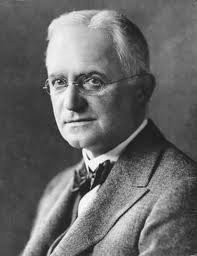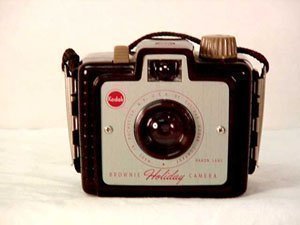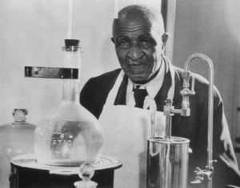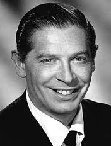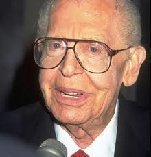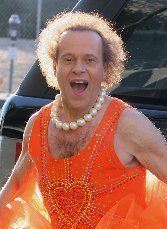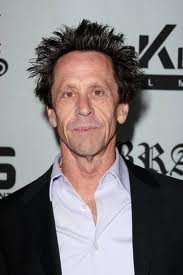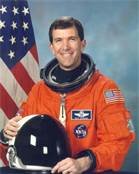
Francis Albert Sinatra ; December 12, 1915 – May 14, 1998) was an American singer and actor. Nicknamed the "Chairman of the Board" and later called "Ol' Blue Eyes", he is regarded as one of the most popular entertainers of the mid-20th century. Sinatra is among the world's best-selling music artists, with an estimated 150 million record sales.
Born to Italian immigrants in Hoboken, New Jersey, Sinatra was greatly influenced by the intimate, easy-listening vocal style of Bing Crosby and began his musical career in the swing era with bandleaders Harry James and Tommy Dorsey. He found success as a solo artist after signing with Columbia Records in 1943, becoming the idol of the "bobby soxers". Sinatra released his debut album, The Voice of Frank Sinatra, in 1946. He then signed with Capitol Records and released several critically lauded albums. Sinatra left Capitol in 1960 to start his own record label, Reprise Records, and released a string of successful albums. In 1965, he recorded the retrospective album September of My Years and starred in the Emmy-winning television special Frank Sinatra: A Man and His Music. After releasing Sinatra at the Sands, in early 1966, he recorded one of his most famous collaborations with Tom Jobim, the album Francis Albert Sinatra & Antonio Carlos Jobim. It was followed by 1968's Francis A. & Edward K. with Duke Ellington. Following the release of "My Way", Sinatra retired for the first time in 1971, but came out of retirement two years later. He recorded several albums and resumed performing at Caesars Palace, and released "New York, New York" in 1980.
Sinatra forged a highly successful career as a film actor. After winning the Academy Award for Best Supporting Actor for From Here to Eternity (1953), he starred in The Man with the Golden Arm (1955) and The Manchurian Candidate (1962). Sinatra also appeared in musicals such as On the Town (1949), Guys and Dolls (1955), High Society (1956), and Pal Joey (1957), which won him a Golden Globe Award. Toward the end of his career, he frequently played detectives, including the title character in Tony Rome (1967). Sinatra received the Golden Globe Cecil B. DeMille Award in 1971. On television, The Frank Sinatra Show began on CBS in 1950, and he continued to make appearances on television throughout the 1950s and 1960s.
Sinatra was honored at the Kennedy Center Honors in 1983, was awarded the Presidential Medal of Freedom by Ronald Reagan in 1985, and the Congressional Gold Medal in 1997. He received eleven Grammy Awards, including the Grammy Trustees Award, Grammy Legend Award and the Grammy Lifetime Achievement Award. Sinatra was included in Time magazine's compilation of the 20th century's 100 most influential people. American music critic Robert Christgau called him "the greatest singer of the 20th century" and he continues to be regarded as an iconic figure.
Francis Albert Sinatra was born on December 12, 1915, in an upstairs tenement at 415 Monroe Street in Hoboken, New Jersey, the only child of Italian immigrants Natalina "Dolly" Garaventa and Antonino Martino "Marty" Sinatra, who boxed under the name Marty O'Brien. Sinatra weighed 13.5 pounds at birth and had to be delivered with the aid of forceps, which caused severe scarring to his left cheek, neck, and ear, and perforated his eardrum—remaining damaged for the rest of his life. His grandmother resuscitated him by running her grandson under cold water until he gasped his first breath. Due to his injuries at birth, his baptism at St. Francis Church in Hoboken was delayed until April 2, 1916. A childhood operation on his mastoid bone left major scarring on his neck, and during adolescence he suffered from cystic acne that further scarred his face and neck. Sinatra was raised in the Catholic Church.
Sinatra's mother was energetic and driven, and biographers believe that she was the dominant factor in the development of her son's personality traits and self-confidence. Sinatra's fourth wife Barbara would later claim that Dolly was abusive to him when he was a child, and "knocked him around a lot". Dolly became influential in Hoboken and in local Democratic Party circles. She worked as a midwife, and according to Sinatra biographer Kitty Kelley, also ran an illegal abortion service that catered to Italian Catholic girls, for which she was nicknamed "Hatpin Dolly". She also had a gift for languages and served as a local interpreter.
Sinatra's illiterate father was a bantamweight boxer who later worked at the Hoboken Fire Department, working his way up to captain. Sinatra spent much time at his parents' tavern in Hoboken, working on his homework and occasionally singing a song on top of the player piano for spare change. During the Great Depression, Dolly provided money to her son for outings with friends and to buy expensive clothes, resulting in neighbors describing him as the "best-dressed kid in the neighborhood". Excessively thin and small as a child and young man, Sinatra's skinny frame later became a staple of jokes during stage shows.
At a young age, Sinatra developed an interest in music, particularly big band jazz and listened to Gene Austin, Rudy Vallée, Russ Colombo, and Bob Eberly while idolizing Bing Crosby. For his 15th birthday, his maternal uncle, Domenico, gave him a ukulele, and with the instrument, he performed at family gatherings. Sinatra attended David E. Rue Jr. High School from 1928, and A. J. Demarest High School (since renamed as Hoboken High School) in 1931, where he arranged bands for school dances,[38] but left without graduating after having attended only 47 days before being expelled for "general rowdiness". To please his mother, he enrolled at Drake Business School, but departed after 11 months. Dolly found her son work as a delivery boy at the Jersey Observer newspaper, where his godfather Frank Garrick worked and after that, worked as a riveter at the Tietjen and Lang shipyard. He began performing in local Hoboken social clubs such as The Cat's Meow and The Comedy Club, and sang for free on radio stations such as WAAT in Jersey City. In New York, Sinatra found jobs singing for his supper or for cigarettes. To improve his speech, he began taking elocution lessons for a dollar each from vocal coach John Quinlan, who was one of the first people to notice his impressive vocal range.
If you want to read a lot more, go here: https://en.wikipedia.org/wiki/Frank_Sinatra
But the best part of this summer pasta recipe? It's totally budget-friendly! Plus, you can easily swap out your roasted veggies based on what's in your kitchen or available at the local farmer's market. It's warm and comforting but also light and bright, which is perfect for warmer months.
- 1/3 cup olive oil
- 6 cloves garlic, chopped
- 1 teaspoon salt
- 1/2 teaspoon black pepper
- 6 plum tomatoes, cut into 1-inch chunks
- 1 zucchini, cut into 1/2-inch chunks
- 2 summer squash, cut into 1/2-inch chunks
- 1/2 cup chopped onion
- 1 (16-ounce) package angel hair pasta
- 1/4 cup slivered fresh basil
- 1/4 cup grated Parmesan cheese
Preheat oven to 450º.
Chop the vegetables into large chunks.
1962 – The Rolling Stones perform their first ever concert, at the Marquee Club in London.
Thank God for George, or what would I take pictures with???
1864 – George Washington Carver, American botanist (d. 1943)

- Complete heterochromia – one iris is a different color from the other.
- Partial heterochromia or sectoral heterochromia – part of one iris is a different color from the rest of the iris.
- Central heterochromia – an inner ring is a different color than the rest of the iris.


.jpg)





